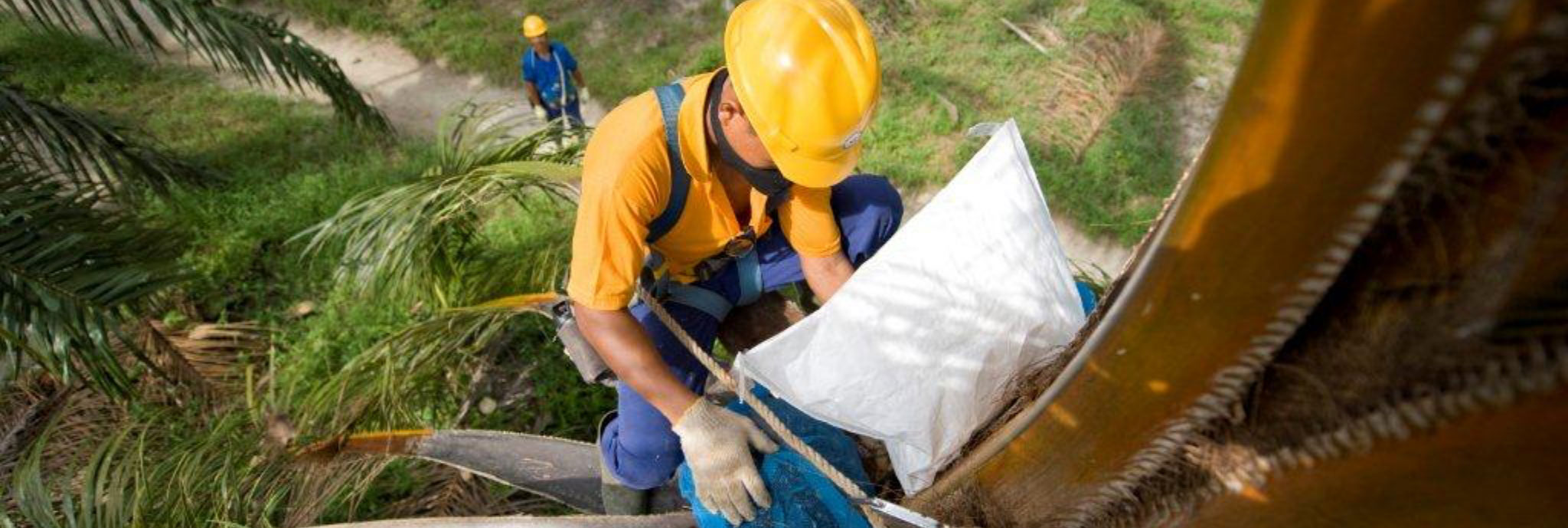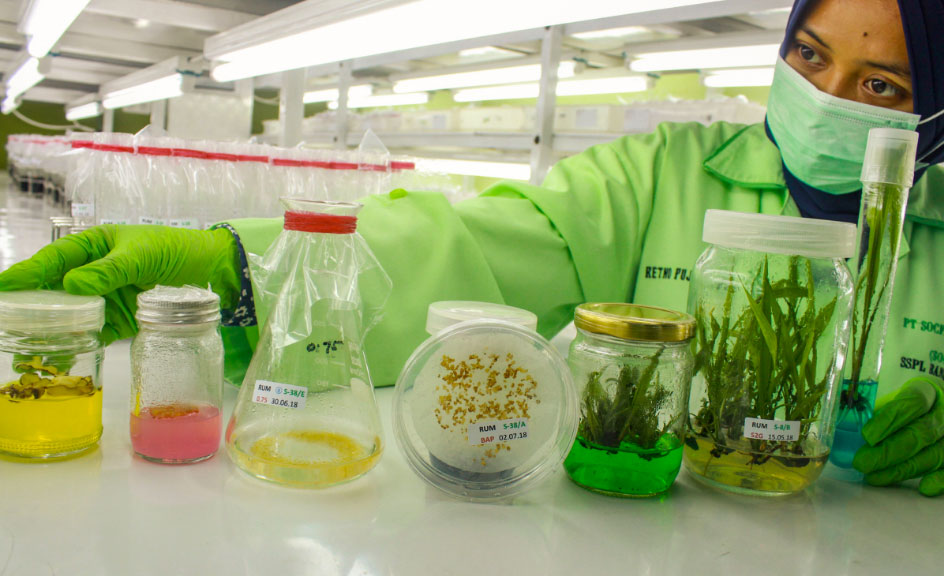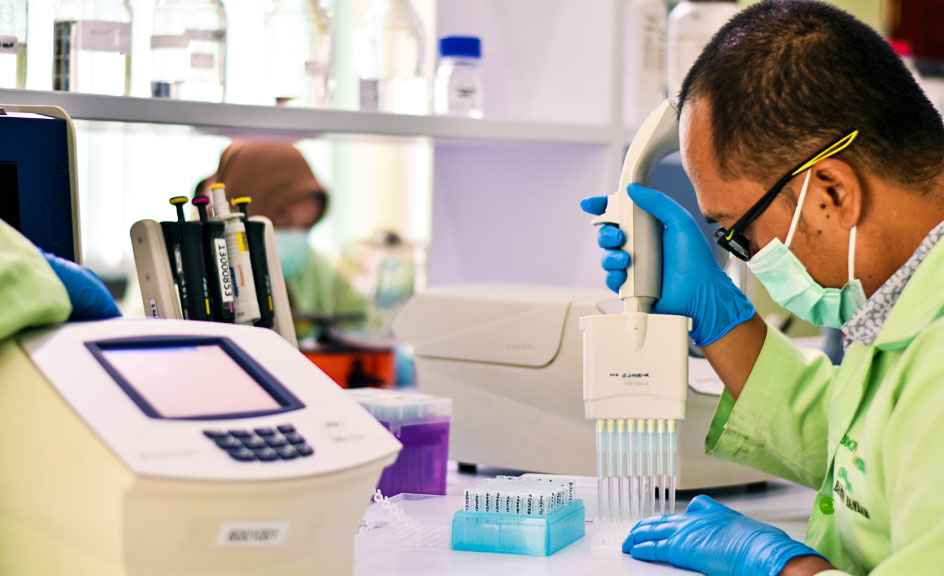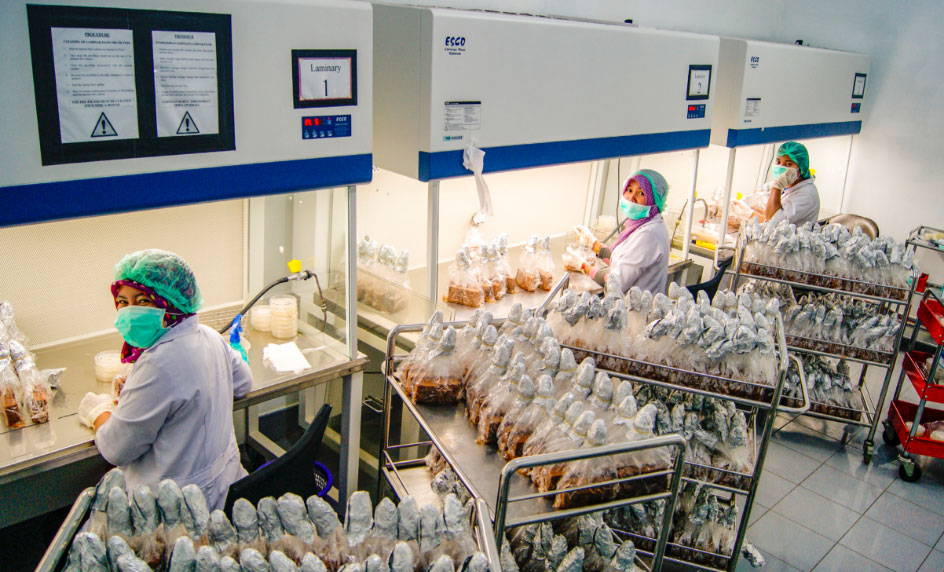Today Socfindo Seed Production and Laboratories (SSPL) leads the Company’s Research and Development and is the driving force behind continuously delivering superior product and quality as well as increasing the sustainability of its oil palm plantation business.

SSPL’s Research and Development Division focuses on 4 pillars, consisting of:
Since 2015, our tissue culture laboratory has worked on developing clones in-vitro for our two crops, namely the oil palm Elaeis guineensis and rubber tree Hevea brasiliensis.
For the oil palm, we are working on cloning “elite” palms in-vitro, through collaboration with the French research institution CIRAD. Our objective is to safeguard our parental material and being able to reproduce efficiently the best genetic source. This technique also assists our breeders to conserve parental material that is resistant to Ganoderma, in order to connect trials from generation to generation. So far our activities have succeeded in cloning the oil palm, which we are currently in the process of testing and observing in the field.
As for the rubber, through collaboration with the University of Ghent, we are looking at cloning specific material, eliminating the need for grafting and increasing the latex potential. One of our objectives is to rejuvenate clones in vitro that have some of their characteristics that were eroded with time. So far, in what we believe is a first in Indonesia, we have succeeded in cloning some specific rubber varieties which we are testing in comparative trials.

This laboratory was established in 2013 with the specific objective of assisting Socfindo breeders in developing superior varieties, as well as conducting identity checking (ID check) of parents and progeny material.
At present, our DNA laboratory, also known as the bio-molecular lab, has legitimised more than 25,000 oil palm parent trees, including Dura, Tenera and Pisifera palms, using capillary electrophoresis technology.
The DNA laboratory is also spearheading research in oil palm traits through molecular selection (MAS/ Marker Assisted Selection) that are associated with Ganoderma resistance, shell gene and low lipase characteristics. Through this technique, we are also able to verify and confirm the status of rubber clone collections against specific clonal identities.

In 2000, in collaboration with the French research institution CIRAD, Socfindo initiated a specific long term breeding programme to control the disease caused by Ganoderma.
With standardised methods, the pathology laboratory conducts early screening test of Socfindo’s palm genetic material to obtain plants that have Ganoderma tolerance. Every year more than 1,200 crosses are screened in this laboratory.
In addition to screening tests, the pathology laboratory also collects and conserves various Ganoderma strains from different regions throughout Indonesia. The collection and conservation are then tested for aggressiveness to determine the level of malignancy of each strain collected.
The pathology laboratory was instrumental in releasing our DxP MT Gano variety in 2013.

Our cycles of selection since 1970 have allowed Socfindo to consistently develop and offer improved planting material, delivering higher yields at each cycle. Our current varieties can reach 30 tonne per Ha on average while 40 tonne per Ha is not uncommon, when optimum conditions are met in commercial plantations.
Slower Vertical Growth (40-50 cm/year) than other seeds (which have 70-90 cm/year of vertical growth). Slower growth allows for a longer harvesting lifetime. Socfindo seeds have been verified for high-yielding output exceeding 25 years (compared to others that can only be harvested for 15 to 18 years). This means a single palm can productively yield for longer and pushes out the replanting window which is both a significant economic and sustainable benefit.
Socfindo was the first company to produce commercial oil palm seeds that are tolerant to Ganoderma, and has become a bench mark and market leader for palm oil seeds Ganoderma tolerant. Since its release, more than 13 million DxP MT Gano seeds have been sold both on the domestic and international market. For the African conditions we are able to offer seeds that have a high tolerance to Fusarium.
Our seeds, producing a high number of bunches per year, or more adapted to marginal areas and climate conditions, in particular water deficit. This is particularly important as the impact of climate change is felt and erratic weather conditions become the norm.